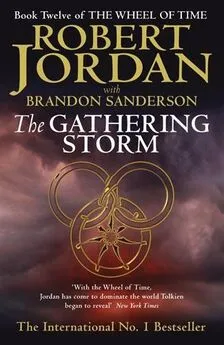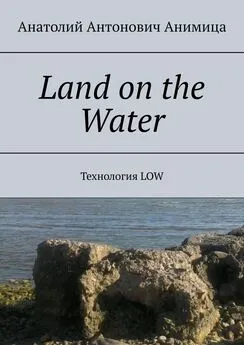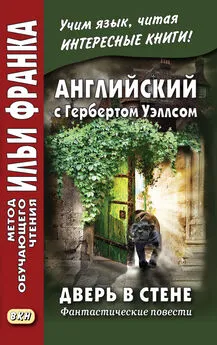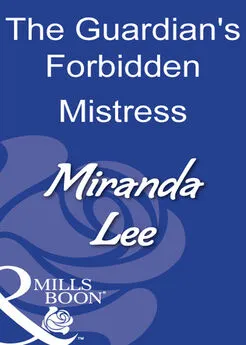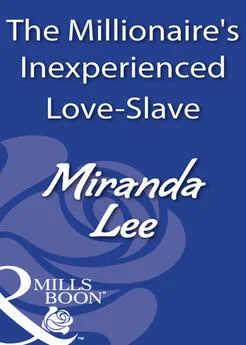Robert Low - The Whale Road
- Название:The Whale Road
- Автор:
- Жанр:
- Издательство:неизвестно
- Год:неизвестен
- ISBN:нет данных
- Рейтинг:
- Избранное:Добавить в избранное
-
Отзывы:
-
Ваша оценка:
Robert Low - The Whale Road краткое содержание
A band of brothers, committed only to each other, rides the waves, fighting for the highest bidder, treading the whale road in search of legendary relics.
Life is savage aboard a Viking raiding ship. When Orm Rurikson is plucked from the snows of Norway to brave the seas on the Fjord Elk, he becomes an unlikely member of the notorious crew. Although young, Orm must quickly become a warrior if he is to survive.
His fellow crew are the Oathsworn---named after the spoken bond that ties them in brotherhood. They fight hard, they drink hard, and they always defend their own.
But times are changing. Loyalty to the old Norse Gods is fading, and the followers of the mysterious "White Christ" are gaining power across Europe. Hired as relic hunters, the Oathsworn are sent in search of a sword believed to have killed the White Christ. Their quest will lead them onto the deep and treacherous waters of the whale road, toward the cursed treasure of Attila the Hun and to a challenge that presents the ultimate threat.
Robert Low has written a stunning epic, a remarkable debut novel. Not only a compelling narrative, The Whale Road also brings a new Viking landscape stretching from Scotland through the Baltic and on to Istanbul.
________________
"A company of warriors, desperate battles, an enthralling read."
---Bernard Cornwell
The Whale Road - читать онлайн бесплатно ознакомительный отрывок
Интервал:
Закладка:
Of course, Valgard and Rurik then pointed out that the Elk needed attention and that, if Einar sailed it upriver, he was as good as penned like a sacrificial ram. Better, they said, if the Elk hauled off down the coast a way with a minimum crew. Repairs could be done—nails had worked loose, the mast stays were frayed—while the rest went on to the forge.
That day, under wool-cloth shelters—no one wanted to stay in the stinking fish huts of the locals, even if it pissed down—two things happened that made Einar decide to send the Elk away.
The first seemed innocent enough. Pinleg was Odin's man—I found out why this day—and very devout, almost as deeply as Valknut. Whenever we made landfall, he would make a cairn of stones and decorate it with raven feathers, much frayed with use, that he kept for the purpose.
There were also Christ-followers—Martin the monk was now to be found sitting with them—and it had never been a problem. But that weasel of a monk knew what he was about and it was this day that made Einar realise what a danger he was and made me wish I had kept my blade edge-on to his tonsured head.
I was sitting, boiling leather strips to soften them and wrapping them round the metal rim of my shield before they hardened. Then I would tap them home with some rivet nails I had managed to get.
I had wanted to do this since the fight at St Otmund's chapel, when the boy's sword had bounced off the rim in a shower of sparks. The wild bounce of it had almost laid my cheek open, so I had decided then to give an enemy edge something to bite on rather than leap off.
Not that it had done that boy any good. I remembered the rain pooling in his open eyes and shivered, at which Hild placed her hand quietly on my shoulder. She was sitting behind me, braiding my hair, which had grown long and was falling in my eyes as I tried to work on the shield.
I felt the touch and tried not to let my face flame. The winks and nudges of the others, the first time she had done something like this—repairing rents in my cloak had made me wish she'd go away. Since then, I found myself enjoying her company. I was almost happy.
In fact, we exchanged smiles, her lips still chapped and swollen. She liked to be busy—it kept her from thinking too much. But nothing kept her from those moments of . . . absence . . . when her eyes rolled up and she was gone elsewhere. Into the dark.
Valknut said this sort of failing sounded to him like the falling sickness, for someone in the farm next to the one he was born on had it: a girl, he recalled. He said it was a disease that came from some Roman king, the one who was so great all the subsequent Roman kings took his name for their glory.
`She used to fall like a cut tree,' he remembered. 'Then she jerked and thrashed and foamed at the mouth, much like a man I once saw hit with an axe that laid his head open so that the inside fell out. But she was whole. Her family were used to it and all of them carried strips of leather to shove in her mouth, otherwise she would have bitten through her own tongue.'
But I did not think this was the same thing at all—or, if it was, it was a lesser version. Hild did not foam at the mouth or thrash. She just hugged herself and wailed and went away somewhere else.
I was enjoying the feeling of her at my hair as I tapped away at the shield and was aware, on the edge of my vision, that Pinleg was at his little cairn, reciting from memory the forty-eight names of Odin.
And Hring walked up to him, stood for a moment, then said, 'We think you should pull that down, for it is a heathen affront to good Christ-men.'
All those who heard it were so astonished they couldn't speak. I saw that all the Oathsworn's Christ-sworn, about a dozen of them, were standing apart, with Martin the monk lurking at their back. I saw, too, that he and Einar were looking at each other across the shingle, a battle of eyes as harsh as two rutting deer locking horns.
Pinleg stopped his reciting and slowly turned to face Hring, leaning slightly to one side as he favoured his good leg. 'Touch that cairn,' he said quietly, 'and I will take off your head and piss down your neck.'
`You are an arch-pagan,' Hring persisted, but he stumbled over the word, so that all those who heard knew it was not his own, Pinleg included. Einar caught Illugi Godi's eye, jerked his head slightly and Illugi moved to intercept the quarrel before it went too far. But he arrived too late.
Àrch-pagan,' repeated Pinleg and curled his lip. 'You can't even say it, you arse. I hear the words, but the voice belongs to that dung-faced little fuck hiding behind you all.'
Hring flushed at that, for it was true and he was aware that he had delivered his challenge badly.
Embarrassment and frustration made him stupid. 'He has two good legs, though,' he said.
There was the briefest of pauses; the world held its breath. It was unspoken, but a rule, that no one made a joke of Pinleg's crippled limb. Even Hring knew he had gone too far. Perhaps, like me, he had reasoned that runty Pinleg was no danger.
When the focus of the quarrel then landed up in his balls, swung with considerable force, driving the air out of him with a savage whoof and the pain into him with a leap of blinding tears, he should have seen sense.
Instead, writhing, his hands clutched between his legs, he screamed out through the snot and tears and pain: 'Holmgang!'
Once out, it couldn't be put back. The news that Pinleg and Hring were to fight spread and even those away on a hunt hurried back.
Illugi Godi, after consulting with a grim-faced Einar, had the proper area paced out and roped off with strips of cloth and as much true ceremony as could be mustered under the circumstances. Then Pinleg and Hring appeared, stripped to the waist, bareheaded and armed with sword and a shield.
The holmgang was simple enough. You fought in an enclosed area with no armour and the same weapons. If you put one foot outside—going on the heel, as it was called—you lost. If your blood was spilled, you lost. If you ran, you lost—and were counted a nithing, with no honour. The only other way out was to win. There's a lot more ceremony and a few more rules, but that's the weft of it and all anyone standing in the square of it needs to know.
Pinleg looked ridiculous, a white body with ribs showing, scrawny as an old chicken. Another of the Oathsworn, who had never seen him fight, actually jeered. Hring was much more powerfully built and stepped up, swinging his sword to loosen his arm.
But I saw Pinleg was muttering to himself, that his head was shaking and I felt the hairs all over my body prickle.
They stepped into the roped area and Illugi Godi began the ritual, cleansing the combat, making sure no bloodprice penalty lasted with the winner from his friends or family.
And all the time Pinleg muttered and his head shook. Little flecks appeared at the corners of his mouth and I believe, around then, Hring began to realise the awful truth and just how much of a mistake this was.
Illugi Godi stepped out of the ring. Hring boldly slapped sword on shield and fell into a crouch. Pinleg stood for a moment, then his whole body spasmed, spittle flew from his mouth as he screamed, the shield went flying to one side and he launched himself across the ring.
I had never seen a berserker. I have heard all the tales since, about them being shape-shifters, turning into bears, or that they got their name from wearing bearskins, or that it was really wolf pelts.
Some say they chew strange herbs, or drink bark brews to get into the state of it, but the truth is that a berserker is a frothing madman with a blade, a man who does not care if he lives or dies as long as he gets to you and kills you. And the only way to kill one is to cut the legs off and hope he can't crawl as fast as you can run.
Pinleg lurched like a troll on wheels, faster than anything I had ever seen, his neck out, his chin jutting. It reminded me, in that fleeting moment, of the snake-headed white bear when it roared at me after falling through the roof.
Hring was taken by surprise, overwhelmed. He had no chance. There was simply the shrieking and then sickening, wet chopping sounds as Pinleg, spraying strings of saliva, hacked Hring into bloody pats of meat and kept on hacking.
`Fuck . . .' said someone.
Kol Fish-hook, one of Hring's Christ-following friends, moved as if to drag Pinleg away, but Einar roared, 'Stay. If you value your life.'
And, realising what they were dealing with, the circle moved cautiously backwards as Pinleg carved and roared.
When he finally ran out of screams, he stood, soaked in blood, his hair sodden with it, his face a mask of clotted red, save for the eyes, which seemed to dull suddenly, like the sea under a cloud. He slumped to his knees, drooled a little, then he fell forward on his face and snored.
Einar stood up as Illugi Godi and Valknut moved to carry Pinleg away. 'You should know that one of the forty-eight names of Odin is Frenzy,' he said, sweeping his black-ice gaze round us all. 'Know also that anyone else who decides what religion will be followed in the Oathsworn will have me to deal with. I will not be as merciful as Pinleg and kill you quickly.' Then looked at Martin and said: 'You made this. You clean it up.'
Stunned at what he had seen, Martin stumbled forward to where the red ruin that had been Hring lay.
Einar would not let anyone help him and, when Martin took up an arm to try and pull the bloody thing away, it tore free in his hands and he fell backwards on his arse into a puddle of blood.
Everyone laughed, even the Christ-sworn, then turned away in sorrow and disgust. Hring had found his death and it had not been a good one. Arguments broke out about whether he would make Valholl, given that he had been a Christ-follower when he died. Some of the others were uncomfortable with this, realising only now what following the White Christ really meant.
I watched as Martin, his robes soaked with red, gathered up and hauled off the bits and suddenly realised I knew nothing much about Hring other than that he liked to fish and he had been the only other one to help consign the Serkland woman to the sea when she died at Skirringsaal.
But something had happened here. Hring had broken his oath and I knew it was because Einar had broken his oath with Eyvind.
I think Einar knew it, too, so that when Valknut came up and announced that Ulf-Agar was gone, it was just another turn of Odin's subtle revenge. Or Loki's. Who knew?
Òne of the fishermen saw a limping man get on that knarr just before it left,' Valknut added.
`He has broken his oath as well,' I said and, for the first time, Einar's black eyes would not meet mine.
The next morning, I stood on the shingle in another spring mirr of rain and watched the Elk slide out and away from the village. All around, watching with me, were the Oath-sworn, all but a dozen—all the Christ-men—who had gone with my father and the Trimmer to safety down the coast.
Watching, too, was Martin, his ruined hand still tucked under one armpit, the puddle at his feet tinged pink from the blood that still seeped from his brown habit. He wore a leather collar now and a leash that attached him to Pinleg like a hound.
When the Elk had all but vanished into the rain mist, we turned in ones and twos and started to collect our gear. Hild, who had a spare cloak that had belonged to my father, had more of my essentials, wrapped in a bedroll.
With scarcely a word, falling into the familiar routine, we formed up, with Bag-nose and Steinthor questing out in front, and started the long march upriver, to Koksalmi and the forge.
Читать дальшеИнтервал:
Закладка:

